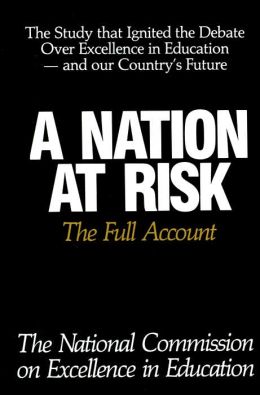
As I have shared before, attending #ASCD13 was a life changing experience for me. I was flooded with learning and had the chance to listen to many #EduHeroes whose articles and books I have read for years. And while that was exciting and a great learning experience, there was one person I was looking forward to meeting more than any other (sorry Dr. Guskey, Maya Angelou). I knew I was going to have the chance to meet my #EduHero
George Couros. George and I had talked on a more personal note for a while now and he even tried to convince me to take him to a Packer/Bears game. If I had a line on tickets in September, I would have hooked him up without a second thought. But he was talking about the game at Soldier Field in December. I have seen the Packers in December. While I love the Pack, I love the feeling in my toes and a warm couch even more. So he went with some other Bear fans and I had to stay at home and just brag about beating the Bears from the warmth of my couch. While he and some other Tweeps went out for dinner, I stayed at home and chatted with folks on Twitter.
I have been using Twitter for just over a year. As I have stated in previous posts, I do not, of course, count that short time about 3 years ago when I tried twitter by following Ashton Kutcher and Alyssa Milano. While it was entertaining for about 2 weeks, I quickly got bored with all of Alyssa's causes and Ashton's.....strangeness I guess. So when I read about using twitter on an educator's blog post a couple of years later I used a new e-mail address and focused on making it an educational tool. I followed only educators. People I had never met before. Most of them had quite a few followers already, so I would look through their list of followers to determine who else I could follow. Within a couple of days I connected with George Couros. I noticed he had a great deal of followers. I also noticed he shared some interesting posts and more importantly some amazing blog posts. He was wise, witty and maybe my favorite trait, he was personable. George would let you into his life. He shared incredible and innovative ideas to implement in schools, but he also challenged the trends that were taking place. The other thing that amazed me about this guy from Canada with around 26,000 followers at that time, he followed me back. I had only tweeted a few tweets, lots of RTs and Favorites, but hadn't shared much of myself or my thoughts yet. And he still followed me. Soon I got up the courage to comment on a few of his tweets and even directed a couple of questions to him. I was blown away when he responded. He didn't know it, but I had found a new friend.


So I roll into Chicago a day early to enjoy a pre-conference session on Standards Based Grading & Reporting led by Dr. Thomas Guskey and it was amazing. And while it was fantastic and helped reinforce many beliefs I already had, I was distracted. I found an excellent example of the
SBG report card I would like to use in my district, I connected with other educators who had already been using SBG report cards and we shared some great ideas. But, I was still distracted. My anticipation to meet George was always in the back of my mind. Why? We had chatted on twitter many times. We had shared jokes and even had plans to meet and talk while there. So what was my worry? Well this was the guy with over 27,000 followers now and....well....I was just one of them. I mean for all I knew George was just a really nice guy, that was willing to connect with anyone (and he is). So when I am at a convention with over 10,000 people I guess I was thinking, would he have plans to meet with over half of them already? I mean I was fairly new to all of this and he had PLN members there that he had been following for years, and had shared blog posts with and even attended previous conferences with, so when I tweeted him after the morning session and he said he was going to be in the blogger's lounge for the General Session, I had a feeling he was going to be pulled into that group and we probably wouldn't get to connect after all. The good news was I made plans to save seats for some other great friends and PLN members that were also attending. I sat with
Jessica Johnson,
Kathy Perret,
Katrina Stevens,
Joe Sanfelippo, Christian Pleister and my wife Leah Whitford.
As I was walking out of that first General Session I bumped into another great friend via Twitter, Jimmy Casas, on our way out of the General Session and he said he was planning to meet George out by the vendor area. I was pumped! I spot him easily from across the giant hall (he's like 6'3" or 6'4"). I also notice he has about 10 people around him already and people are walking up to him and asking for photos. My wife (who has a bit of a crush on him) wanted a photo with him too. I gladly obliged and took a picture with my iPhone. I waited for my reciprocal offer, but as usual, when she is smitten like that, I had to ask her if she would do the same. Now usually I am pretty used to being a recognizable guy. I'm 6'3" and over 300lbs (this means I need to run with
Josh Stumpenhorst). So when I walked up to George and said, "Hey George, I'm Tom. Nice to meet you finally. Do you mind if I get a photo," well, I thought I might get a little more of a look of recognition on his face than I did. But like I said, he had a line of folks waiting to get photos and he was really keying in on meeting up with Jimmy Casas. So I said, "Thanks, see you later," and headed off to my next session. I was going in to listen to
Dave Burgess speak. I had recently gotten his book, "Teach Like a Pirate" and wanted to hear him speak on the subject. So, I am sitting up in the front row, due to the fact that educators tend to be like church goers, they avoid the front so the preacher doesn't catch them napping (or tweeting) during the sermon, and those were the only seats left. Dave's session was way over capacity. I'm sitting there checking my twitter feed when I get a text from George saying, "Man, I had no idea that was you. Save me and Jimmy a seat." Well apparently Jimmy was distracted on the way because George came up and sat by me. I was in a bit of shell shock that this #EduHero of mine was sitting by me without his entourage (he'll love that comment) and he was chatting me up. Discussing aspects of Dave's session that we agreed with and parts that we didn't, and a few things that were outside the topic (see the people in back knew what they were doing). We quickly started to sink into great conversations and debates about education, tweeting and started discussing who to go see next. That one was easy,
Eric Sheninger's session was a must see.
I was able to spend the rest of the weekend with an amazing guy. On Monday, the last day of the event, George came over to Leah's and my Hotel and had lunch with us. He shared some great stories of he and his parents, his brothers and how he came to where he is today. I was saddened when I heard about the
loss of his father just a week later. It was incredible to strengthen the bonds that we had built over twitter, but after getting to know him deeper, more personally, and then to have him share his incredible insights and experiences in a face to face situation, only deepened my respect and friendship with the Principal of Change.
 So I have been reading various posts and books about culture. There is a lot of talk about the culture of Fear in our school systems right now. There is a wave of change sweeping the education system in the US and there is a strong voice of reform and anti-unionism that accompanies it as well. The media for years (ever since good ole Ronny Reagan) has supported the hysterical talk of the demise of the US education system. So maybe much of that culture of fear isn't as imagined as some would like to think.
So I have been reading various posts and books about culture. There is a lot of talk about the culture of Fear in our school systems right now. There is a wave of change sweeping the education system in the US and there is a strong voice of reform and anti-unionism that accompanies it as well. The media for years (ever since good ole Ronny Reagan) has supported the hysterical talk of the demise of the US education system. So maybe much of that culture of fear isn't as imagined as some would like to think. 

 I am searching for the naysayer or antagonist amongst my staff. While I am not looking to battle over every decision we need to make, in order to make sound decisions about some of the changes I believe we need to make, we need to have some cognitive dissidence to ensure we are looking at all perspectives and truly examining these ideas so that they will work and be embraced as good ideas. My friend, George Couros wrote an intriguing piece on the
I am searching for the naysayer or antagonist amongst my staff. While I am not looking to battle over every decision we need to make, in order to make sound decisions about some of the changes I believe we need to make, we need to have some cognitive dissidence to ensure we are looking at all perspectives and truly examining these ideas so that they will work and be embraced as good ideas. My friend, George Couros wrote an intriguing piece on the 















